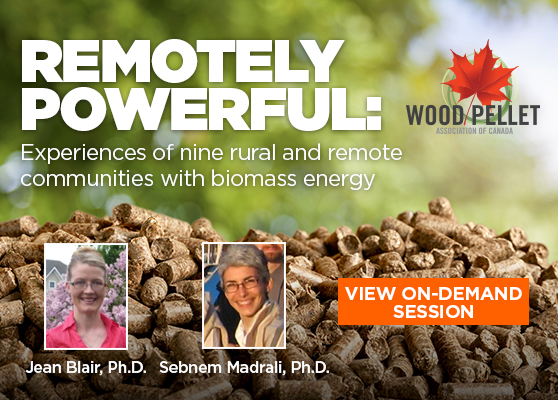| |
 |
|
|
 |

Although the live portion of this year’s virtual WPAC Conference and AGM has come and gone, registrants can still watch on-demand sessions, including a presentation on nine rural and remote communities’ experience with biomass energy.
A large number of Canada’s 250 or so remote communities currently rely on diesel generators to produce their electricity, and on oil, diesel or propane fuelled furnaces for their space heating and domestic hot water needs. Modern bioenergy systems are one of the few clean and renewable options for displacing fossil fuels used to meet heating and electricity demand in remote northern communities. Several diesel-dependent communities across Canada’s north have recently adopted biomass heating or combined heat and power (CHP) technologies.
As the application of bioenergy in remote communities grows, it is important to gain a better understanding of what has worked, or not, in terms of fuel supply, technologies and system design in order to guide future efforts, and to help streamline the development of biomass heating and CHP in other communities.
In this session, Sebnem Madrali, an engineering project lead at Natural Resources Canada, and Jean Blair, a consultant with experience in renewables and bioenergy, share key findings from a survey of nine rural and remote communities and a summary of those communities’ experiences with energy systems fueled by wood pellets.
To learn more, check out this on-demand session, along with the many other presentations available for FREE.
|

|


